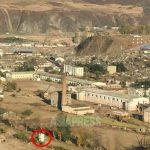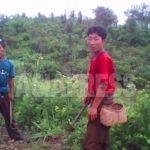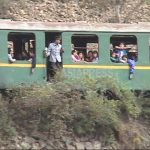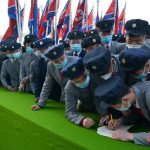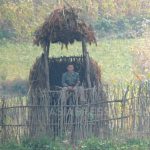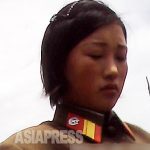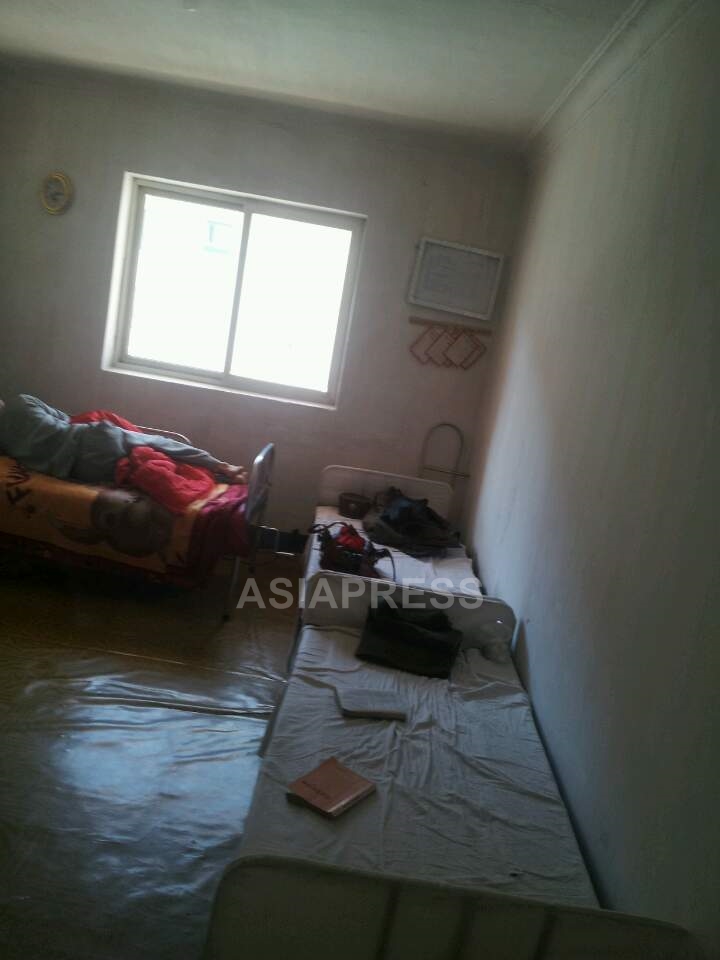
As the shortage of medicines in North Korea’s provincial cities worsens, reports from inside the country suggest than people have died after being unable receive even simple medical procedures. Right after Kim Jong-un acknowledged the outbreak of COVID-19 in May, Chinese medicines were quickly sent to provincial cities; however, shortages of medicines appear to have worsened the collapse of the country’s medical system. Several ASIAPRESS reporting partners in the northern part of the country provided updates on the situation. (KANG Ji-won / ISHIMARU Jiro)
◆ Lack of anesthesia leads to the death of an appendicitis patient
“You will die if you get sick”
“[North Korea’s] free medical system no longer exists”
These expressions are commonly used in provincial cities, although it’s not clear whether people say the same thing in Pyongyang, the capital. “A,” a reporting partner in Yanggang Province, gave ASIAPRESS this report in mid-October:
A: “When COVID-19 was spreading, the government handed out enough food for one or two meals along with a little Chinese fever reducers. Now, everywhere is plagued by a shortage of medicine. Recently, a person with an inflamed appendix in Kimhyungjik County was taken to Hyesan because he was unable to undergo surgery due to a lack of anesthesia and disinfectant, but he died when his appendix ruptured. His family tried to obtain medicine by going to pharmacies and private medicine sellers, but they couldn’t get any, so the man was unable to get surgery.
“On October 5, a six-year-old child living in Wuiyong-dong, in downtown Hyesan, was hit with an acute case of diarrhea, but died because her parents were unable to get diarrhea medicine or get her intravenous therapy when she began suffering from dehydration.
“People now know that even the simple medical procedures possible before the start of COVID-19 (before 2019) are no longer available at local hospitals, so they have to head to provincial hospitals or to ones in Pyongyang. Those with wealth or status can go to the hospitals in Samjiyon City, but those hospitals don’t accept ordinary people from other areas of the country. I’ve heard that there are medical supplies shortages in Samjiyon as well.”
※ Samjiyon was developed as a tourist city by Kim Jong-un and, after being upgraded from a “county” to a “special city,” a general hospital was built there.
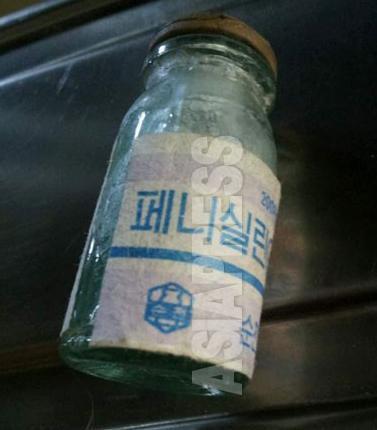
◆ Crackdowns on medicine sellers makes it hard for people to obtain medicine
A: “The (government’s) rule says people have to purchase medicine from pharmacies attached to hospitals, but the pharmacies don’t get any of the medicines people need. If you head to a hospital the doctor will even ask his or her own patients during their consultation whether they can obtain medicine themselves. Doctors do their rounds, but the injections, for example, are all those obtained by the patients, not the doctors.
“At the very least, the authorities need to stop cracking down on private medicine sellers. The police teams doing the crackdowns pour insults on those they catch. Many people are saying that instead of doing crackdowns, the authorities need to ensure people can buy medicines somewhere. In Hyesan, general pharmacies are being constructed by the province and the city, but they’re meaningless if there’s no medicines. In the past, people could borrow medicines from other residents, but now that’s no possible.”
◆ N. Korea’s “free medical system” is no more
A: “People have to buy medicine at state-run pharmacies with cash. But there’s no medicine in even those places, so people have to go and find sellers with medicine stocks. But now the crackdowns on private sellers have gotten so bad there’s no one selling medicines. There’s no such thing as a “free medical system” anymore.
“The authorities have loosened crackdowns on people promoting folk remedies, saying that it’s state policy to use acupuncture, cupping, and needles. Knowing it can earn them money, there are people who have quickly learned what they can about Oriental medicine through books and, despite their ignorance, are going ahead and treating others.”
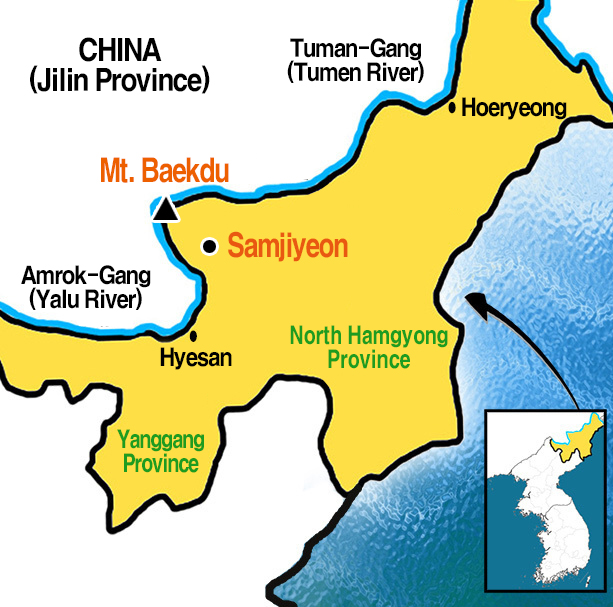
◆ Where did all the medicine imported in September go?
Yet North Korean authorities have not suspended the import of medical supplies. According to trade statistics published by the Chinese custom authorities in late October, North Korea has imported medical supplies worth USD 430,000, including antibiotics, insulin, and steroids. The country has also imported more than 10 million masks and two million thermometers. The reason provincial cities have faced such systemic shortages of medical supplies up until late October has likely been because these imported medical supplies have gone to Pyongyang and specific government organizations first.
Following North Korea’s acknowledgement of a COVID-19 outbreak in May, the government began strictly controlling access to medical supplies. On May 14, as reported by NK News, the Ministry of Social Security released a statement declaring that anyone found to have stolen and then sold medicines supplied to hospitals and pharmacies will face severe punishment, even execution.
“B,” a reporting partner in North Hamgyung Province, made the following report in early July in regards to the heighten restrictions on medical supplies after the Ministry of Social Security statement was released.
“When COVID-19 was spreading, a great deal of medical supplies arrived in Pyongyang, but their sale was prohibited outside of hospitals, pharmacies and medical supply shops. Meanwhile, people who had sold medicines in the past had their houses searched. Medicines found during the searches were confiscated and the sellers were interrogated about where the medicines had come from. Cadres who had stolen medicines were arrested and faced severe punishments, including stripping them of their party memberships, removal from their positions, and even deportation. After that, people had to use cash to buy medicine through state-run pharmacies. It’s no longer possible for people hit with a severe disease to buy medicines on credit or purchase them on the cheap from people they know. Lots of people are upset by this.”
※ ASIAPRESS communicates with its reporting partners through Chinese cell phones smuggled into North Korea.
- The goal of N. Korea’s missile and nuclear development is to perpetuate the rule of the Kim family…The regime is ignoring the existence of its starving population ISHIMARU Jiro
- <Insider Interview>How have North Korea’s people viewed the country’s continued missile launches? With food shortages continuing, their distrust and disinterest in the government is deepening…
- <Inside N. Korea> Shocking levels of urban poverty forces an increasing number of people to abandon cities to beg in rural areas
- N. Korea begins preparations to accept Chinese tourists in Samjiyon…
- <Inside N. Korea> Massive increase in opium addicts leads to measures by the authorities as the drug is used to treat COVID-19 symptoms
- <Inside N. Korea>Recent farming situation (1) Farm mobilizations begin in earnest…The authorities work hard to prevent stealing of harvested crops
